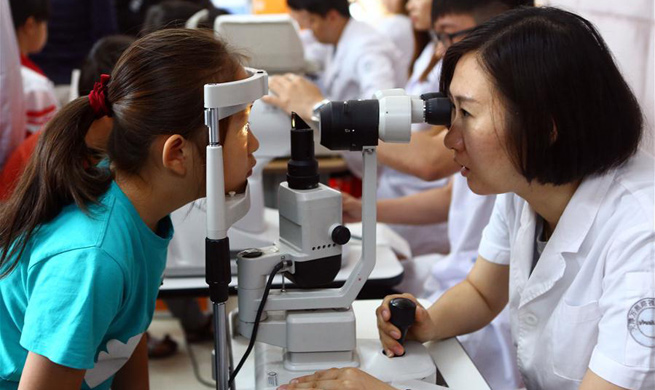JUBA, June 6 (Xinhua) -- South Sudan seeks to strengthen effectiveness and efficiency of the community health sub-system by training more health workers and upgrading infrastructure, Health Minister Riek Gai Kok told Xinhua.
The Boma Health Initiative launched in April seeks to empower rural communities through training of three community health workers in each village (Boma) and upgrading health infrastructure to enable delivery of high impact and cost-effective primary health care services.
"Production of trained health workers is priority to reduce the labor deficit and upgrading infrastructure is key to improving health sector at the local level," Kok said in a recent interview.
It will provide integrated community case management for child health including screening for malnutrition; malaria, tuberculosis, promotion of immunization, provision of safe motherhood interventions and early identification and referral for Neglected Tropical Diseases.
Kok said the health ministry had gathered the material resources required to kick-start the project, but is still looking for funds to support advocacy, sensitization and training.
He said logistical challenges to distribute tools such as bicycles, gumboots, stationery and communication gadgets had also delayed implementing the project.
"We have secured sizable number of tools but it has been delayed by the huge logistical constraint and the financial situation we are in, we can't do it alone. We need to bring on board other partners especially the NGOs that are working in the rural areas," he added.
After its launch, the World Health Organization (WHO) said it would support the war-torn East African country to implement the ambitious project to assist rural communities to live healthier lives across South Sudan where 83 percent of the estimated 12.3 million population live in rural settings.
WHO said communicable diseases remain the leading cause of mortality and morbidity in South Sudan.
Medical complications of malnutrition, severe pneumonia, severe malaria and prenatal complications remain the most common causes of death in under-fives.
Preventable diseases including malaria, diarrhea and pneumonia account for most childhood illnesses seen in community settings.

















